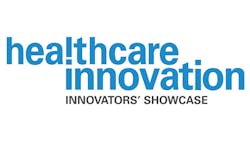Workit Health, an addiction treatment center with locations in Michigan and California, offers online, on-demand evidence-based addiction treatment, including telehealth medication for opioid use disorder. The facility partners with healthcare organizations with the aim of delivering an innovative digital health solution that blends the best of human-centered design, technology, and science, its officials say.
Through Workit Health’s mobile and web apps, members meet with clinicians, counselors, and coaches, and work on completing self-set recovery goals. Its interactive curriculum of over 1,000 online courses looks to keep members on track in the comfort of home, as the company believes in offering 24/7 recovery designed by its team that fits into a member’s daily life. Its clinical team has about a dozen members and is Joint Commission-accredited.
“The stakes couldn’t be higher as the overdose epidemic continues across the U.S.,” Lisa McLaughlin, Workit Health’s co-founder said in a statement at the time of the second funding round. “For too long, we’ve relied on all-or-nothing, abstinence-based treatment. Workit’s combination of convenient, mobile-first, patient-led design solutions paired with a disruptively low cost enables more individuals to receive treatment than ever before. Our work with payers shows better outcomes, translating to material cost savings, meaning everyone wins,” she added.
Workit Health has several thousand members in multiple tiers of care across multiple states, and its co-founders—McLaughlin and Robin McIntosh—were once in long-term recovery themselves. “They were tired of friends falling through gaps in the current system of inflexible, unforgiving, inaccessible, and expensive addiction care,” explains Kali Lux, head of marketing at the organization.
“Our team has lost loved ones to waitlists and lack of access to quality evidence-based care. Our co-CEOs saw technology innovations being focused on other health issues while addiction care was largely stuck in the 1930s. We knew bringing proven care into people’s homes via their smartphones would drastically change the marketplace,” Lux says.
The organization operates within a direct-to-consumer acquisition model, which Lux touts as unique in the market, but also necessary “since people needed life-saving treatment like medication for opioid addiction, and we simply couldn’t wait for the ink to dry on contracts with insurance companies.” But Workit Health’s approach of letting members sign up for the program “directly allowed us to prove our models and illustrate demand to payers, which we’re now contracted with,” she says.
“As we mature, we are beginning to partner with more payers and become in-network for a growing percentage of our members and enrollees. In addition, we partner with local and state governments to increase access to Buprenorphine—an opioid medication used to treat opioid addiction—treatment in rural areas where people are struggling to find care,” Lux adds.
For example, she offers, in Michigan, one-third of counties don’t have a provider for Buprenorphine, although this medication is FDA-approved to treat opioid use disorder. “Telemedicine [companies] like Workit Health gives people in those communities a solution to turn to.”
At the onset, when the company began focusing on offering medication for opioid use disorder via telehealth, people were skeptical, since “we’re used to addiction treatment being so strict and shame-based. At Workit Health, we’ve found that building patient-centered and harm reduction-based accessible systems works better than sending people away to punishing treatment for 30 days,” Lux attests.
And now, Lux points to the company’s outcomes as being successful, noting that for a cohort of its patients that were followed for a year, 78 percent of them reached abstinence from opioids after the second month in the program, with 84 percent remaining abstinent from opioids after 12 months. Anecdotal feedback has been positive as well, despite the initial skepticism, she adds. “We’ve had people caring for young children or with demanding jobs start crying on the phone because they’re so relieved to find a flexible program that will work with their schedules. We have a large referral network from our current members, because they’re happy with our care.”
What’s more, the organization also regularly tracks response and quality of life metrics to certify that its members are thriving in recovery. This is done through an algorithm called “thrive meter,” which was created in partnership with the National Science Foundation and aims to assist individuals in better identifying and achieving their desired health goals. More than 80 percent of Workit Health members have reported a higher quality of life and a reduction in addictive behaviors after completing the program, and its library of interactive courses has an average 4 out of 5 star rating.
At some point in 2019, Workit Health plans to expand to New Jersey, and beyond that, will look to move into additional states where people are struggling the most to find access to care. The organization is also launching a telemedicine program for alcohol use disorder. “We’re looking forward to bringing more evidence-based, medical solutions for all addictions into people’s homes and accessible with the touch of a button,” says Lux.



